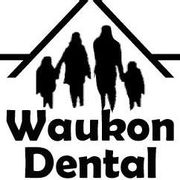
When an injury leaves you with a severely cracked tooth or decay affects the sensitive pulp at the center of a tooth, your dentist may recommend a root canal. This procedure involves drilling into the tooth to remove damaged soft tissue to prevent further decay and save it from extraction. Though pain during this routine treatment is minimal due to the use of anesthetics, the affected tooth may continue to hurt a little for a few days afterward. Fortunately, it’s possible to minimize discomfort and protect the treated tooth by knowing what to do—and what to avoid.
Do:
Brush and floss.
It may be a little uncomfortable to do so, but it’s important to keep brushing and flossing your teeth as usual to keep plaque and oral bacteria to a minimum. A root canal typically leaves the affected tooth sensitive and weak while it heals—and therefore more susceptible to infection and decay than normal. Use a soft-bristled toothbrush and gently clean around the treated tooth for at least two minutes twice a day, floss carefully, and consider using an antiseptic mouthwash to reduce the risk of bacterial activity.
Monitor swelling and discomfort.

It’s normal to experience oral swelling, discomfort, and hypersensitivity after a root canal. This should abate within a few days, especially if the dentist prescribes an antibiotic to counter bacteria. If your gums remain red and puffy or your tooth is still sensitive after several days, have your dentist examine it to determine how to address the issue.
Don’t:
Consume hard, chewy, or hot foods and beverages.
While it heals, your tooth will be weaker and the surrounding tissue softer and more sensitive to extreme temperatures. Chewy, tough, sticky, or crunchy substances and hot or cold foods and beverages can lead to irritation and potential complications.
Choose softer alternatives instead, like cooked fruit and vegetables, pasta, yogurt, scrambled eggs, and mashed potatoes. Coffee, hot tea, and ice-cold drinks should be avoided for at least the first few days.
Use tobacco.
Wait several days before consuming alcohol or tobacco after getting a root canal. Tobacco smoke dries out the mouth, making it harder for saliva to wash away harmful bacteria.
It's also smart to give up your tobacco habit altogether. In addition to an increased risk of cancer and heart disease, regular tobacco use is associated with an increased likelihood of needing further root canals.
If you’re looking for a reliable family dentist, turn to the teams at Family Dentistry Associates of Monona, Dental Associates of Prairie du Chien, P.C., and Waukon Dental. They offer a full range of treatments, including root canals, cosmetic dentistry, and routine oral checkups and cleanings. To find out more about these dentists and the services they provide at three convenient locations, visit Dental Associates of Prairie du Chien, P.C., Family Dentistry Associates of Monona, and Waukon Dental online today.
About the Business
Have a question? Ask the experts!
Send your question

